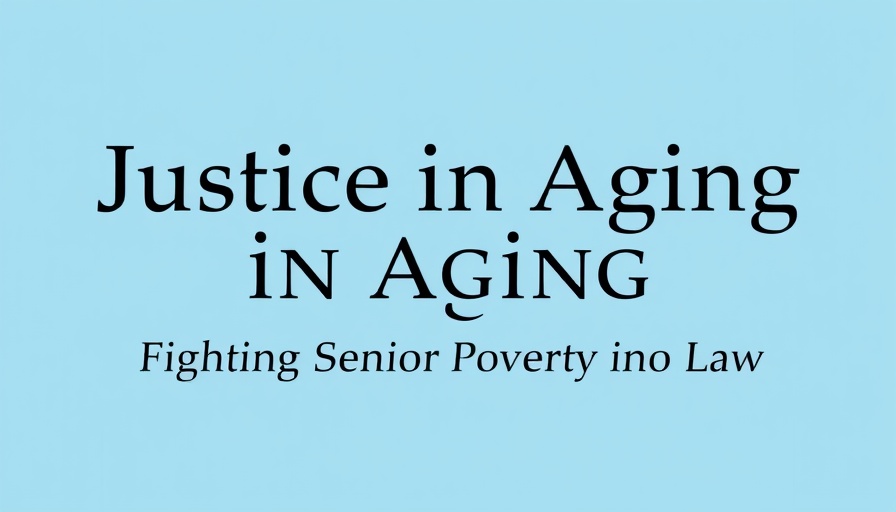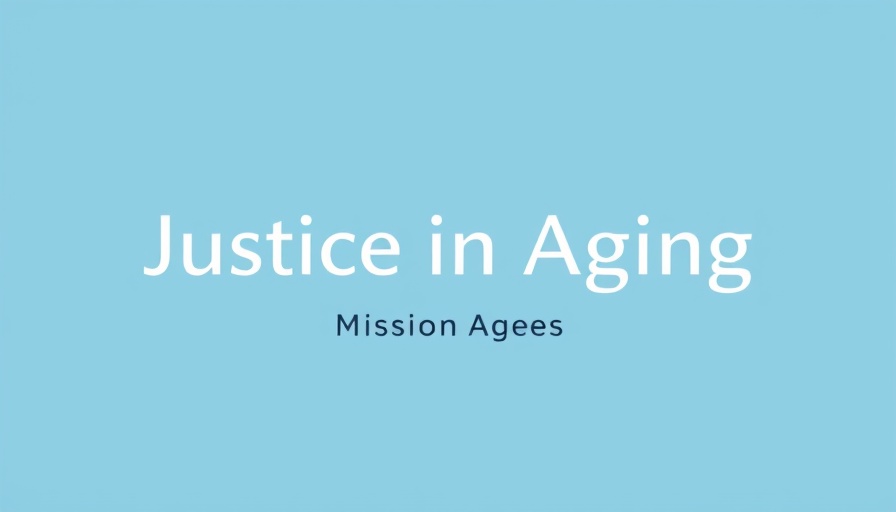
The Evolving Landscape of Immigration Law and Its Impact on Seniors
In recent times, the federal government has adopted an increasingly aggressive stance regarding immigration enforcement, affecting not just non-citizen immigrants but individuals with legal status, such as Venezuelans who cannot return home safely. This shift raises vital concerns for the older adult community and persons with disabilities that utilize health care facilities and services. As the landscape of immigration law evolves, particularly since the termination of special protections for areas like nursing homes and assisted living facilities, a pressing question emerges: what does this mean for these vulnerable populations?
Understanding the New Enforcement Policies
Historically, there was a presumption against immigration enforcement activities in protected spaces such as schools and health facilities. However, since January 21, 2025, the Department of Homeland Security has removed these protective barriers. While immigration agents still face limitations—in particular, they may only enter public areas of facilities without permission—this change leaves many older adults feeling vulnerable and uncertain.
The U.S. Constitution's Fourth Amendment continues to safeguard individuals against unreasonable search and seizure, meaning agents cannot access private areas without consent or a warrant. This distinction is crucial for residents in settings like assisted living facilities, ensuring that their rooms and personal information remain secure. Facility managers are encouraged to assess their spatial designations, clearly marking private areas to support the rights and privacy of their residents.
Protecting the Rights of Older Adults: Practical Steps to Take
For administrators in senior care settings, the need for proactive measures is clear. Actions such as clearly designating private and public areas within the facility can preserve residents' dignity and security. Facilities may post signs indicating private spaces, implement access controls, and train staff on privacy protocols.
Moreover, it's essential for the management to reassess how information about clients is displayed. Simple actions, such as ensuring that computer screens are not visible from public areas, can go a long way in maintaining confidentiality. These adjustments can create a more secure environment for older adults, positively impacting their experience and sense of safety at facilities.
Community Awareness and Sensitivity
Given these recent policy changes, community education becomes paramount. Family members, friends, and caregivers should be aware of the potential for immigration raids and related complications affecting elderly loved ones. Sharing information about residents' rights and encouraging open conversations can arm caregivers with strategies to support the well-being of vulnerable populations in these settings.
Furthermore, local organizations and community centers can play a vital role in advocacy efforts. They can provide resources and legal support for older adults affected by sudden immigration enforcement actions, bridging divides in understanding for individuals navigating these complex scenarios.
The Importance of Legal Consultation
For those working in or utilizing service settings for older adults, legal consultation remains a critical resource. With immigration law constantly shifting, seeking expert advice can ensure that everyone understands their rights and obligations. Service providers should familiarize themselves with the details of these laws to better protect and serve their clients.
Looking to the Future: What Lies Ahead?
The trajectory of immigration enforcement will undoubtedly shape senior care facilities in the coming years. As the environment continues to change, ongoing dialogue about the implications for older adults will be necessary. Adapting to these changes will require that service providers remain knowledgeable and aware of evolving laws while fostering a supportive atmosphere for their residents.
Final Thoughts
As immigration enforcement continues to affect diverse sectors of society, understanding its implications for older adults is crucial. By staying informed and proactive, caregivers, facility operators, and community members can work together to create a secure environment that honors the dignity and rights of seniors. This focus on collaboration can mitigate the potential distress and uncertainty that these immigration changes bring.
 Add Row
Add Row  Add
Add 




 Add Row
Add Row  Add
Add 

Write A Comment